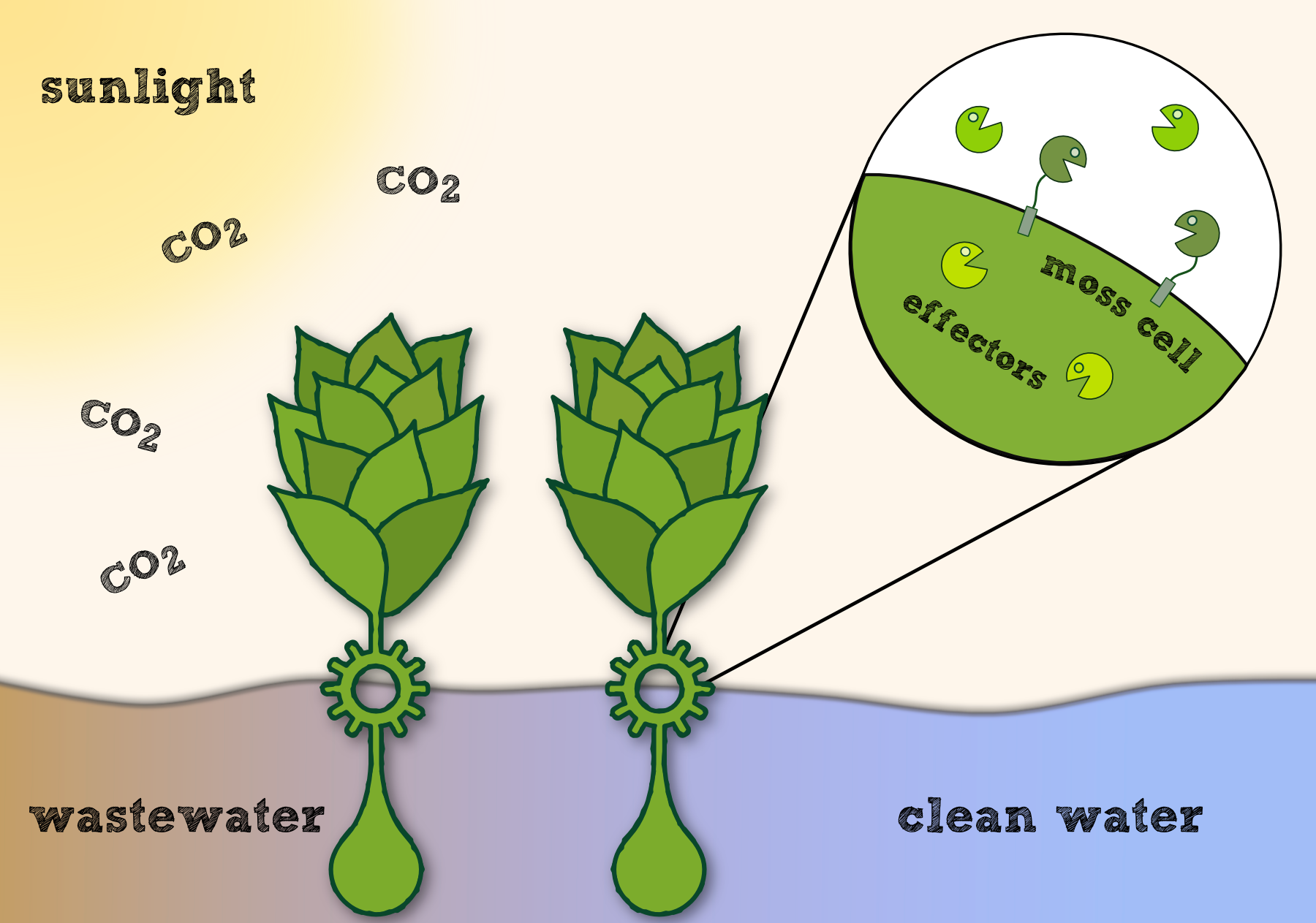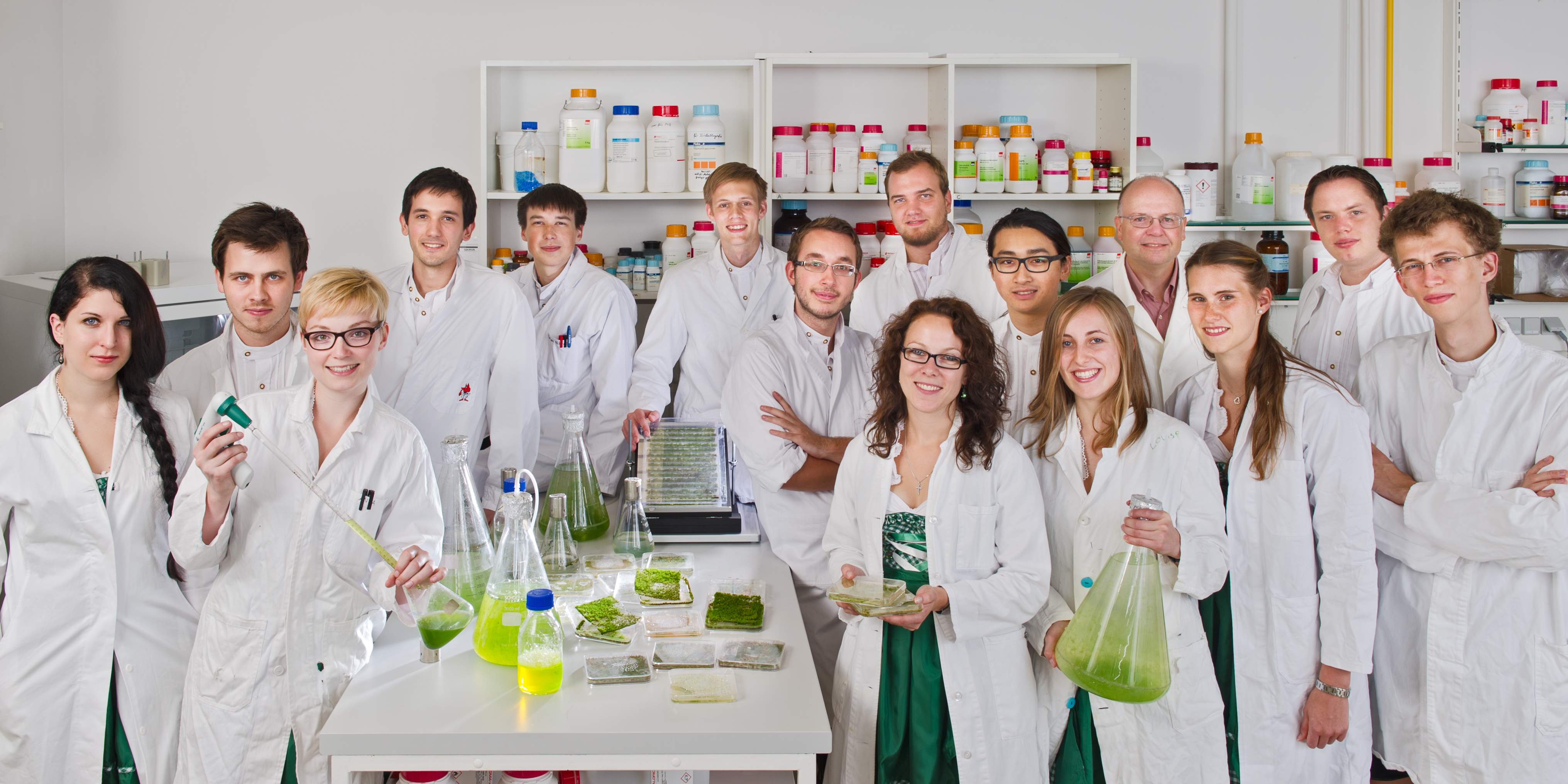Team:TU-Munich
From 2013.igem.org
IngmarPolte (Talk | contribs) (→PhyscoFilter - Clean different) |
IngmarPolte (Talk | contribs) (→PhyscoFilter - Clean different) |
||
| Line 7: | Line 7: | ||
== PhyscoFilter - Clean different == | == PhyscoFilter - Clean different == | ||
| - | The contamination of aquatic ecosystems with a multitude of anthropogenic pollutants has been a problem since the industrial revolution. Pollutants such as antibiotics, hormones and toxins threaten environmental health and are often not effectively removed by traditional water cleaning methods. We propose the employment of transgenic plants producing effectors for enzymatic degradation ([https://2013.igem.org/Team:TU-Munich/Project/Biodegradation BioDegradation]) or specific binding ([https://2013.igem.org/Team:TU-Munich/Project/Bioaccumulation BioAccumulation]) of pollutants. The autotrophic, sedentary, aquatic nature of the moss [https://2013.igem.org/Team:TU-Munich/Project/Physcomitrella ''Physcomitrella patens''] makes it an optimal chassis for a self-renewing, low-maintenance and cheap water filter. A light-triggered kill switch prevents unintended release into the environment by limiting viability to places where a specific wavelength spectrum has been filtered out. Furthermore, having developed a system to implement our filter in aquatic environments, we investigated the application of this new technology and examined its economic potential. Based upon our results, we believe that our approach can improve the global water quality in a sustainable fashion. | + | The contamination of aquatic ecosystems with a multitude of anthropogenic pollutants has been a problem since the industrial revolution. Pollutants such as antibiotics, hormones and toxins threaten environmental health and are often not effectively removed by traditional water cleaning methods. We propose the employment of transgenic plants producing effectors for enzymatic degradation ([https://2013.igem.org/Team:TU-Munich/Project/Biodegradation BioDegradation]) or specific binding ([https://2013.igem.org/Team:TU-Munich/Project/Bioaccumulation BioAccumulation]) of pollutants. The autotrophic, sedentary, aquatic nature of the moss [https://2013.igem.org/Team:TU-Munich/Project/Physcomitrella ''Physcomitrella patens''] makes it an optimal chassis for a self-renewing, low-maintenance and cheap water filter. A light-triggered [https://2013.igem.org/Team:TU-Munich/Project/Killswitch kill switch] prevents unintended release into the environment by limiting viability to places where a specific wavelength spectrum has been filtered out. Furthermore, having developed a system to implement our filter in aquatic environments, we investigated the application of this new technology and examined its economic potential. Based upon our results, we believe that our approach can improve the global water quality in a sustainable fashion. |
<html> | <html> | ||
Revision as of 20:30, 30 August 2013
PhyscoFilter - Clean different
The contamination of aquatic ecosystems with a multitude of anthropogenic pollutants has been a problem since the industrial revolution. Pollutants such as antibiotics, hormones and toxins threaten environmental health and are often not effectively removed by traditional water cleaning methods. We propose the employment of transgenic plants producing effectors for enzymatic degradation (BioDegradation) or specific binding (BioAccumulation) of pollutants. The autotrophic, sedentary, aquatic nature of the moss Physcomitrella patens makes it an optimal chassis for a self-renewing, low-maintenance and cheap water filter. A light-triggered kill switch prevents unintended release into the environment by limiting viability to places where a specific wavelength spectrum has been filtered out. Furthermore, having developed a system to implement our filter in aquatic environments, we investigated the application of this new technology and examined its economic potential. Based upon our results, we believe that our approach can improve the global water quality in a sustainable fashion.
Team TU-Munich 2013
We, the team for the Technical University of Munich consisting of 11 highly motivated and dedicated undergraduate students. We are students from the subjects Molecular Biotechnology, Biochemistry, Mathematics and Mechanical Engineering.
Sponsors

 "
"














AutoAnnotator:
Follow us:
Address:
iGEM Team TU-Munich
Emil-Erlenmeyer-Forum 5
85354 Freising, Germany
Email: igem@wzw.tum.de
Phone: +49 8161 71-4351